Oakville Psychotherapist, Hypnotherapy and Pediatric Hypnosis
Psychotherapy For Women Issues And Problems
Committing to Psychotherapy and Counseling services is a powerful way to improve your mental health. Whether you’re struggling with couples or marriage issues, or seeking help for anxiety, managing ADHD, therapy helps strengthen family relationships and supports healthier communication.
- Psychotherapy For Men
- Psychotherapy for Women
- Depression
- Family Counselling Therapy
- Marriage Counselling and Therapy
- Couples Counselling And Therapy
- Family Counselling Therapy
- Child Counselling Therapy
- Anxiety Disorders
- Stress Management
- Trauma and PTSD
- Addiction
- Eating Disorders
- Self-Esteem and Self-Identity
- Grief and Loss
- Mood Disorders
- Personality Disorders
Oakville's Registered Psychotherapist
Oakville Psychotherapist - Women And Healing
The first step of the therapy process is to create a safe space where you can explore your issues without judgment or pressure. We offer individual counseling, family therapy, couples counseling, child therapy, and more! We provide therapy that puts you first when it comes to psychotherapy for women’s issues. Therapy should be a place where you feel comfortable enough to share your deepest, darkest secrets and fears.
Therapy that puts you first provides a non-judgmental environment in which to work through difficult emotions and memories while learning new skills for coping with daily life. At Oakville-Psychotherapists, we take care of ourselves by taking care of each other. We will help guide you towards making healthy choices for yourself and learn how to live well again!
Female Therapy vs Male Therapy
It’s important to understand that the mental health challenges women face are different from what men typically experience. Our gender plays a big role in how we do things and what challenges we face. Women may feel more pressure to be perfect and therefore are inclined to withdraw socially once they start feeling overwhelmed. This is just one example of how a woman might react differently than a man in similar circumstances.
Women are more likely to have a mood disorder, anxiety, and/or an eating disorder than men. They also face additional challenges due to the changes in their bodies during pregnancy and childbirth such as postpartum depression. Many women feel that they can’t cope with the stress of being a mom or wife, work, family obligations, and personal goals. It’s important for them to know there is help out there. Women can find relief by talking openly about their struggles with someone who has experience helping other women overcome these unique mental health challenges like sexual abuse, posttraumatic stress, violence, relationship issues, depression, anxiety, eating disorders, mental illness, and panic attacks.

Talk Therapy For Issues Women May Face Regularly
Talk therapy is a good option for women who constantly stress over the physical and mental issues in life. Self-help books are great because they give you advice on how to cope when it feels as if everything is crashing down around them, but talk therapy can also be a very valuable tool that helps relieve inner turmoil and develop mental strength so one’s self-esteem doesn’t plummet along with their moods or emotions.
- The majority of women may encounter problems and challenges that come with their everyday lives. However, those who are struggling to manage these difficulties may want a confidential place where they can discuss them or work through some by talking about it.
- Talk therapy is an effective way for people to speak openly without fear of judgment
- “You don’t know what you’re going to say until you start” which means there’s no need for preparation before entering the session
- The majority of women who initially struggle to open up find talking about their problems helpful because it allows them to work through the issues
- As well as dealing with issues surrounding stress, depression or anxiety, people can also speak about relationships and parenting
- Many people are not aware of the benefits that come with seeking help from a counselor
- It can be a relief to speak about these problems because you are no longer carrying them around
- A counsellor is not there to judge or tell you what to do, they just listen and offer support
- When feelings get too much the counselor will help you determine ways of coping with women’s issues
- Talk therapy can be an outlet for women who are feeling overwhelmed by the stresses of life. When a woman is confident in her day-to-day routine, it may seem like there’s no need for talk therapy but sometimes events or situations might come up that would cause any one-person anxiety and overwhelm them with stress such as work problems, family drama, and social obligations.
- Talk Therapy provides people from all walks of life with a space where they feel safe enough to express their emotions without judgment because we understand how hard it can be when you have feelings bottled up inside yourself instead of just saying what comes naturally.
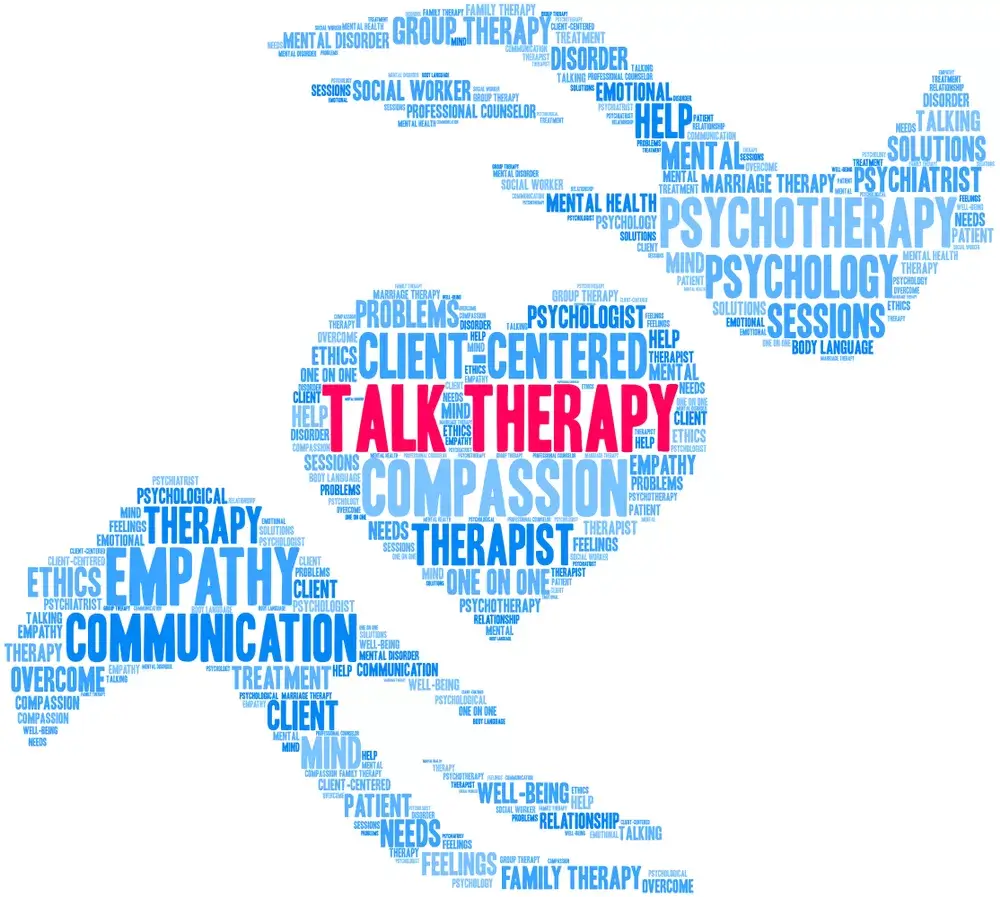
Frequently Asked Questions - People Also Ask - Females Problems Counselling
What Are Women's Issues?
Women’s issues are complex and multifaceted, but one thing is certain: it’s important to be aware of the different factors that contribute to their existence. Women are the world’s most powerful group of people – and yet they still face discrimination, inequality, and abuse. It is time to talk about women’s issues. Women do not need to be empowered, they are already powerful and strong. What we really need now is for men to stop telling them what they can and cannot do with their lives, how much money they should make, or what careers should pursue. We have had enough of the patriarchy!
In the United States, more than 30 million women have a mental illness. Women’s mental health is a broad scope of conditions and circumstances that many women face at different points in their lives. For some, these symptoms may only affect females. Others can be experienced by anyone of any gender. Regardless of gender, being educated on women’s issues and well-being is vital. Women may deal with these concerns differently than men do, so it can be difficult to understand what they are feeling if you have not experienced anything similar.
There are many challenges women can face in their lifetime and while every woman may have different struggles, these common issues arise for a lot of women:
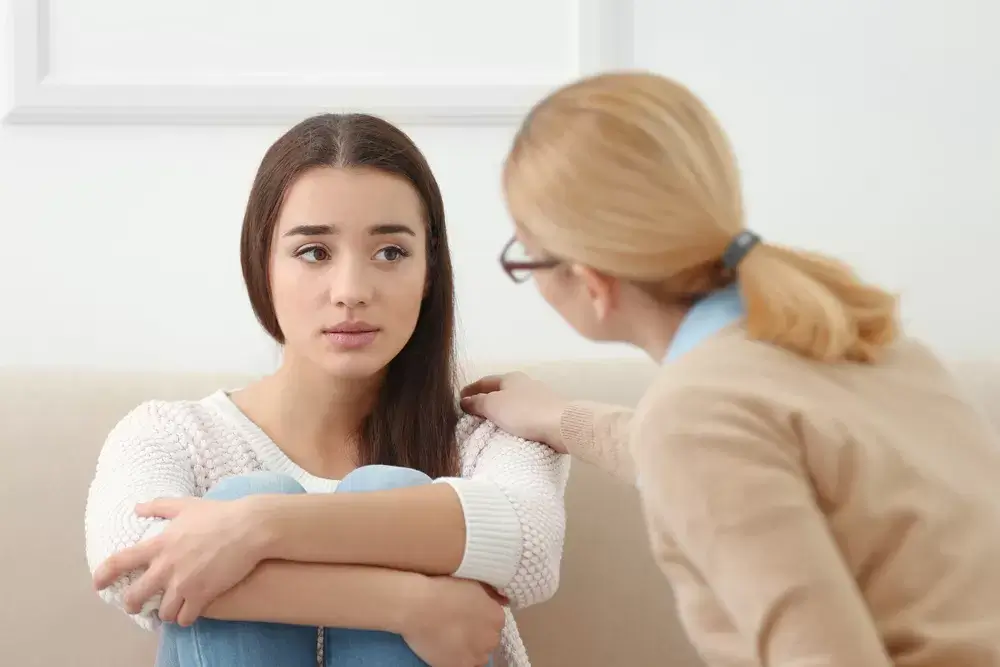
Women Who Face Discrimination
Women have long been facing discrimination in the workplace. In fact, women are paid only 80 cents for every dollar men earn in America. Women also lack access to equal employment opportunities and they make up less than 25% of board directors of Fortune 500 companies and less than 4% of executive officers at those same companies. The statistics don’t lie – it’s time we do something about this!
“Women are disadvantaged by a system that rewards work done outside the home with higher wages while devaluing work inside the home.” But what can be done? There is no single solution but here are some ideas:
- Encourage mentorship programs between female professionals;
- Create more networking opportunities for women;
- Ensure that employment policies protect both men and women equally from discrimination;
- Promote equal pay for all jobs, regardless of gender or parental status.
Gender discrimination can have serious and long-lasting mental effects on a woman. Women may come to believe that they deserve this type of treatment, experience feelings of hopelessness, anxiety, or depression when they are the victims of persistent gender discrimination.
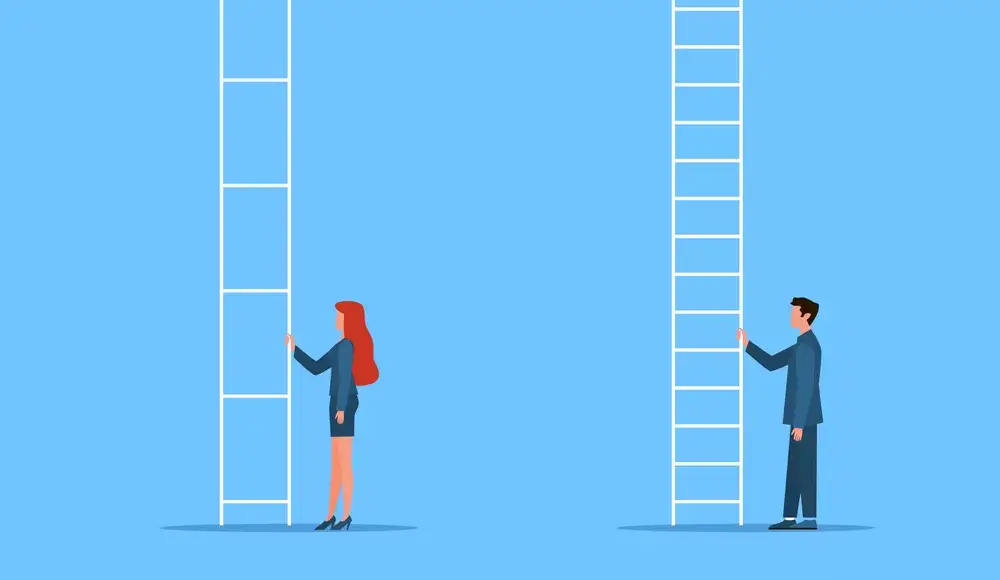
Women Who Experience Domestic Violence
Why is it so hard for some women to escape domestic violence? It seems that every day, we hear about a new woman who has been the victim of abuse in her home. Some are able to leave and start over but others get caught up in their situation until they hit rock bottom. What causes this difference between those two groups? One possible answer might be found when looking at how each group perceives themselves as victims; people with higher self-esteem tend not only to have more opportunities for personal growth, which then leads them towards feeling confident enough to break away from toxic relationships, but also feel less shame or embarrassment around seeking help because they work on owning responsibility instead of blaming someone else. This will lead many into feeling empowered by breaking free and try to not only survive but thrive on their own. Meanwhile, women with self-esteem issues will also have trouble leaving harmful relationships as they will suffer from guilt over “abandoning” the perpetrator or fear of retaliation.
Women who experience domestic violence are often overlooked by society. Their struggles go unnoticed day in and out because people see what their abuser puts on the outside not how it affects them on the inside.
It’s heartbreaking to think that many women don’t know they’re being abused until after some time has passed since there is a lot of overlap with mental health disorders like anxiety or depression which may be caused as an effect of living with abuse every single day without any reprieve before finally seeking help for themselves. It can also have detrimental impacts on relationships too; sometimes abusers will use social media (or other public platforms) to put down and humiliate their partner while continuously controlling the victim’s access.

Women Dealing With Postpartum Depression
Postpartum depression is a serious, but common condition. It affects up to 10% or 1 in 10 new mothers and can happen at any time in the postpartum period. Women with mild to moderate symptoms may recover quickly on their own. For women who experience more severe symptoms or those who don’t get better within a few weeks should seek professional help from qualified health care providers. Treatment usually includes psychotherapy or medication (or both). Women with postpartum depression can feel like they are struggling alone, but there are resources available that may help them get on the path towards feeling better again.
With life transitions of giving birth, it can have dramatic consequences for both the mother’s physical health and mental well-being. The condition is also known as PPD or Postnatal Depressive Disorder (or even “baby blues”).
Symptoms include feeling sad, irritable, stressed, anxiety, crying a lot without knowing why, having low self-esteem/confidence – all these things may be interfering with your relationships too. But you don’t need to feel this way anymore: there are treatments available like therapy that could help get back on track again soon enough.
Anxiety
Anxiety is a mental health issue that affects millions of people of all ages, genders, and backgrounds. Women are more likely to experience anxiety than men. It can be hard to know how to identify anxiety, and it can also be hard to know what you should do about it. The National Institute of Mental Health reports that 18% of women will have an episode at some point in their lives and only 6.7% of men will have an episode. Anxiety is the most common mental illness in the United States, and it can be very debilitating for those who suffer from it on a daily basis. Anxiety disorders come in all shapes and sizes, but they typically fall into one of two categories: generalized anxiety disorder or social anxiety disorder (also known as “social phobia”). Generalized anxiety disorder involves worrying about anything and everything all the time while social phobia involves intense fear when meeting new people or speaking in front of groups.
Depression is not just a temporary sadness that one can go through. Depression is chronic and can be widespread throughout the duration of your life. Depression has physical and emotional effects. Depression has many different emotional and physical effects, and in some cases, it can lead women to contemplate suicide. Feeling hopeless, lack of motivation, difficulty sleeping or sleeping too much, social isolation, anger, and general melancholy that continues no matter what a person accomplishes are some of the most frequent symptoms of depression.
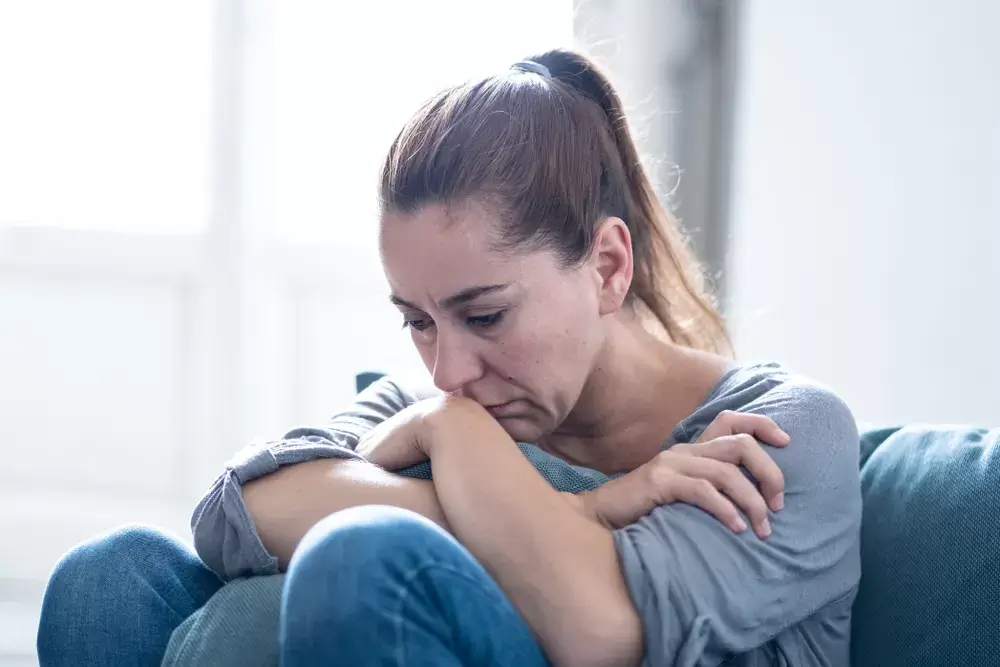
Sexual Abuse
Sexual abuse is a painful and difficult subject to talk about. But it’s an important one, which means we need to be able to have those conversations without feeling like it’s too taboo or embarrassing. The sooner you can start talking about what happened the better so that you don’t carry around all that pain for years. The statistics are alarming. One in three women will experience sexual abuse in her lifetime, and one in four girls will be sexually abused before the age of 18.
Sexual abuse is linked to a variety of personal, physical, mental, and social challenges that can last for years or even decades after the original incident. Sexual abuse is often a form of power and control. This can be seen through such things as sexual harassment, rape, or other unwanted physical contacts between an abuser and their victim. Sexual assault most commonly affects women because they are more likely to experience these types of infringements on their safety than men; however, that does not mean it cannot happen to anyone else who has the unfortunate luck to encounter this type of behavior in others.
Sexual abuse takes many forms including behaviors like sexual harassment all the way up until rape which is one ultimate example where someone exerts power over another person through unwelcome sex acts without consent from either party involved in those events. The sexual abuse itself is traumatic, but once women are sexually abused, they often experience post-traumatic stress disorder (PTSD), depression, struggle to form relationships, anxiety, and feel unsafe in future sexual situations. For some of these victims, the trauma may even lead them to suicidal thoughts.
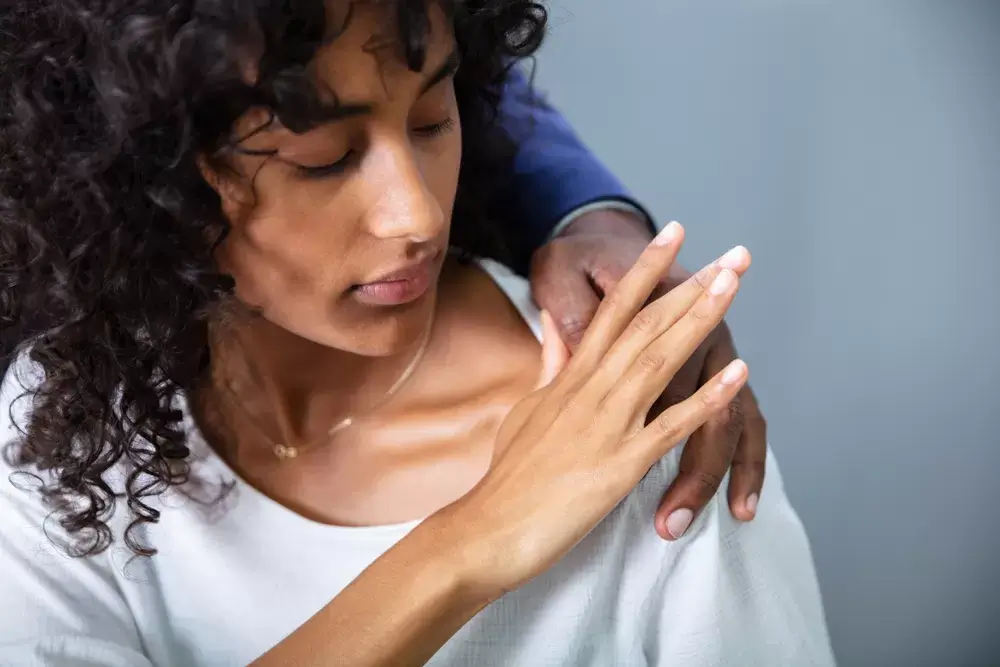
Eating Disorder
Eating disorders are not a topic that most people would be willing to talk about, but they are prevalent in society. It is estimated that 1.5 million women and adolescent girls have an eating disorder in the United States alone every year. Unfortunately, many of these cases go unreported and untreated because of the stigma associated with them or their lack of understanding on what constitutes as a problem.
In general, it is important for everyone to understand how difficult it can be living day-to-day with an eating disorder. Many of them often result in health complications, physical and emotional pain, and require a tremendous amount of willpower to maintain. It is important that women who are suffering from this disorder do not feel alone or as though they are “less than” because these mental disorders bring about feelings of self-hatred.
The pressures of family expectations and society’s unrealistic standards can be too much for many women. This is one of the major women’s issues that leads to an eating disorder that has a serious impact on one’s health, relationships, education, work-life, and self-esteem. Women dealing with eating disorders have it hard in these modern times where the pressure is constantly piling up from various sources.

Women's Mental Health
Mental health is a major issue for women, but it’s not always talked about. It is important to explore the different mental illnesses that affect women and how they can be treated. Women dealing with mental health issues often find themselves in a tough position. They are struggling to take care of their own needs, but also have to deal with the needs of their children and those around them.
The emotional toll can be overwhelming, and sometimes it’s hard to know how much you’re able to handle at once. It is important for women who feel like they might need help managing their symptoms or getting through difficult times that they get professional assistance from a therapist as soon as possible. This will give them the tools they need to lead healthier lives both now and in the future.
Women dealing with mental health issues are seen as weak and unable to take care of themselves. This is not the case, but it’s hard for people who do have a problem to speak up about it because there are so many misconceptions out there that make them feel ashamed or embarrassed.
Many women all over the world deal with mental health issues or emotional distress from time to time, yet they often get overlooked in society due to their unwillingness or inability to talk about what might be going on inside of them spiritually and mentally even when these things affect every aspect of one’s life outside home walls. There seems like no end in sight for this stigmatization until more people start talking openly, only then will we see an improvement made at finding ways to help those suffering mental health issues.
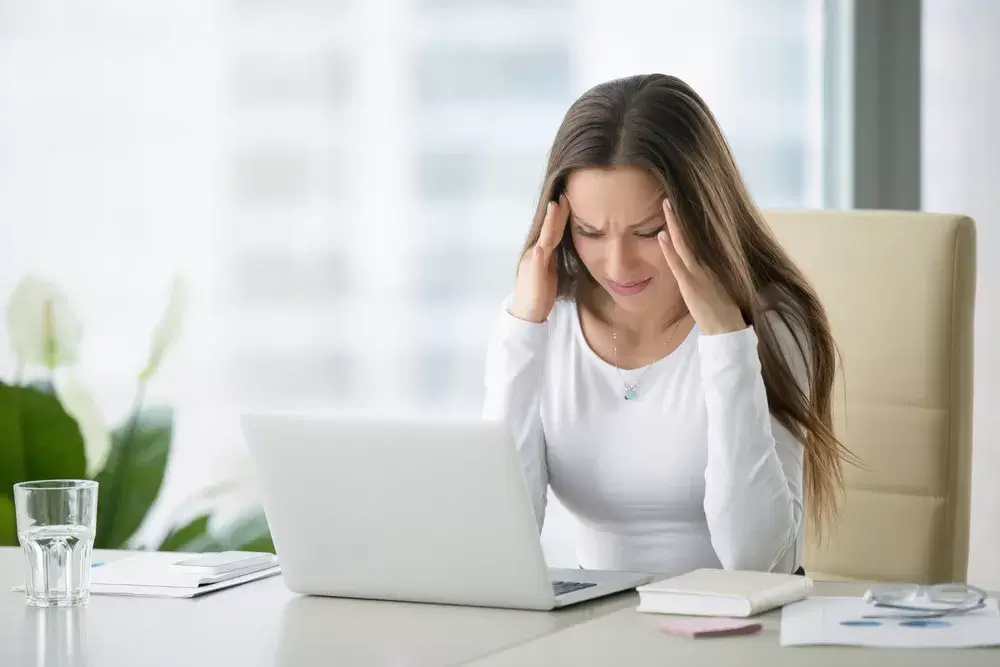
Is Psychotherapy A Good Option For A Women's Issues And Problems?
Women who feel that they have a lot of issues and problems in their lives will often try to find solutions on how to fix them by themselves. It is common for some women’s troubles to be so complex or difficult that there can’t always be a simple solution. Psychotherapy might then provide the perfect option. Psychotherapy has been found to be an effective treatment for women’s issues and problems. In one study, psychotherapists were able to successfully reduce the incidence of intrafamilial violence against them by 53%.
Psychotherapy is a great option for treating many common female disorders such as anxiety or depression. It can also help you cope with physical challenges like infertility treatments and postpartum adjustment disorder better than some other methods might do so on their own.
Psychotherapists are trained professionals who can help with any type of problem. They will go through various courses on identifying different triggers which often lead to emotional distress or even addiction. Sessions involve active listening skills and techniques such as role-playing so patients can find new ways of thinking about their problems and issues.

About Town of Oakville
Oakville, a scenic town situated between Toronto and Hamilton, is celebrated for its stunning parks, well-kept neighborhoods, and strong sense of community. With parks like Tannery Park offering serene views of Lake Ontario, Oakville residents enjoy easy access to nature right within the town’s limits. The expansive Bronte Creek Provincial Park is perfect for families and nature lovers, featuring hiking trails, children’s play areas, and picnic spots. Gairloch Gardens, with its beautifully landscaped grounds and lakeside location, provides a tranquil retreat for those looking to escape into nature or appreciate art in the park’s on-site gallery.


The town’s neighborhoods, including the bustling Downtown Oakville and the historic district of Old Oakville, showcase a harmonious blend of modern convenience and traditional charm. Downtown Oakville, with its boutique shops, cafes, and cultural festivals, is a hub of activity, while Old Oakville’s cobblestone streets and heritage homes offer a glimpse into the town’s rich history. Neighborhoods like Glen Abbey, known for its renowned golf course, and Joshua Creek, with its modern amenities and proximity to top-rated schools, make Oakville a desirable location for families. Whether you’re enjoying a day at one of Oakville’s many parks or exploring its unique neighborhoods, the town offers a perfect balance of natural beauty and urban life.
- Dundas Street (Highway 5)
- Trafalgar Road
- Lakeshore Road
- Speers Road
- Third Line
- Upper Middle Road
- Bronte Road
- Royal Windsor Drive
- Winston Churchill Boulevard
- Ford Drive
- Dorval Drive
- Rebecca Street
- Great Lakes Boulevard
- 16 Mile Drive
- QEW (Queen Elizabeth Way)
- North Service Road
- South Service Road
- Maple Grove Drive
- Burnhamthorpe Road
- Glenashton Drive
- West Oakville
- Falgarwood
- Kerr Village
- Clearview
- West Oak Trails
- Bronte
- Palermo
- Ennisclare Park
- Glen Abbey
- Uptown Core
- Oakville East L6K
- Oakville South L6L
- Oakville North L6H
- Oakville West L6M
- Oakville Northeast L6J
If you liked this content and found it to be informative


